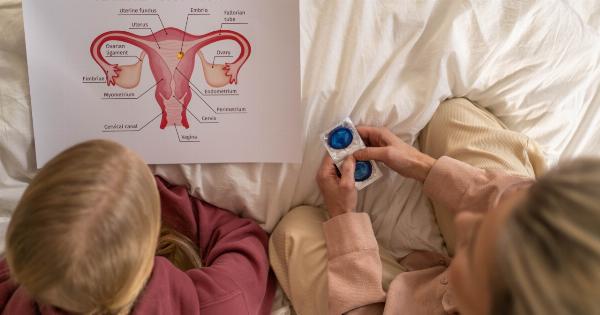There are numerous misconceptions surrounding the use and efficacy of the next day pill, also known as the morning-after pill.
It is important to separate fact from fiction and provide accurate information to ensure individuals have a clear understanding of this important form of emergency contraception.
What is the Next Day Pill?
The next day pill refers to a type of emergency contraception that can be taken by individuals who have had unprotected sex or experienced contraceptive failure.
It is designed to prevent pregnancy after engaging in sexual activity without using any form of birth control or when the primary method of birth control fails.
How Does it Work?
The next day pill primarily functions by delaying or preventing ovulation, which is the release of an egg from the ovaries. It may also affect the lining of the uterus to make it less receptive to a fertilized egg, thereby preventing implantation.
It is important to note that the next day pill is not an abortion pill and will not terminate an existing pregnancy.
Dispelling Misconceptions
There are several misconceptions regarding the next day pill that need to be debunked:.
1. The next day pill is the same as the abortion pill.
This is a common misconception.
The next day pill, such as Plan B One-Step or ella, is a form of emergency contraception that prevents pregnancy, whereas the abortion pill, such as mifepristone and misoprostol, is used to terminate an existing pregnancy. These are two distinct medications with different purposes.
2. The next day pill is 100% effective in preventing pregnancy.
While the next day pill is highly effective, it is not 100% foolproof. Its efficacy decreases over time after unprotected sex, and the chances of preventing pregnancy are highest when taken as soon as possible.
It is important to understand that emergency contraception should not be considered a routine method of birth control but rather as a backup option for emergencies.
3. The next day pill is only for women.
It is a common misconception that the next day pill is exclusively for women. However, certain emergency contraception methods, such as copper intrauterine devices (IUDs), can be used by both women and people with a uterus.
These can effectively prevent pregnancy when inserted within a specific timeframe after unprotected intercourse.
4. Taking the next day pill frequently can harm future fertility.
There is no evidence to suggest that using the next day pill repeatedly will have any long-term impact on future fertility.
Emergency contraception is designed to be a safe and effective option for preventing unwanted pregnancies in emergency situations. However, it is still recommended to use regular contraceptive methods for ongoing contraception to ensure reproductive health.
5. The next day pill protects against sexually transmitted infections (STIs).
It is crucial to note that the next day pill does not protect against sexually transmitted infections. Its sole purpose is to prevent pregnancy and should not be relied upon for protection against STIs.
It is essential to use barrier methods, such as condoms, to reduce the risk of contracting or transmitting STIs.
6. The next day pill is only available with a prescription.
While it is true that certain brands of emergency contraception require a prescription, others are available over-the-counter, meaning they can be purchased without a prescription or consultation.
This accessibility allows individuals to obtain emergency contraception quickly and discreetly when needed.
7. The next day pill will cause an abortion if already pregnant.
This is a widespread misconception. The next day pill does not have any effect on an existing pregnancy. It works by preventing fertilization or implantation and is ineffective once the fertilized egg has implanted in the uterus.
If someone is already pregnant, they should explore other options and consult a healthcare professional for appropriate guidance.
8. The next day pill has severe side effects.
For most individuals, the next day pill is well-tolerated and does not cause severe side effects. However, like any medication, it can have potential side effects such as nausea, fatigue, headache, and irregular menstrual bleeding.
These side effects are typically temporary and resolve on their own without any long-term implications.
9. The next day pill is only effective the morning after unprotected sex.
Although many emergency contraception options work best when taken as soon as possible after unprotected sex, their effectiveness persists for a certain timeframe depending on the specific medication used.
Some options remain effective for up to 72 hours, while others can be taken within a window of 120 hours. It is crucial to read the instructions and consult a healthcare professional to determine the appropriate timeframe for each type of next day pill.
10. The next day pill is readily available to everyone.
While access to the next day pill has greatly improved over the years, it is essential to recognize that disparities still exist in its availability and affordability.
Legal restrictions, age limitations, and socio-economic factors can affect access to emergency contraception. Efforts should be made to ensure that individuals have affordable and equitable access to this essential form of emergency contraception.
Conclusion
Debunking common misconceptions regarding the next day pill is crucial to ensure accurate information is available to individuals seeking emergency contraception.
Understanding its proper use, efficacy, and limitations empowers individuals to make informed decisions regarding their sexual and reproductive health. It is important to consult healthcare professionals, read instructions carefully, and prioritize regular contraceptive methods to prevent unintended pregnancies effectively.






























